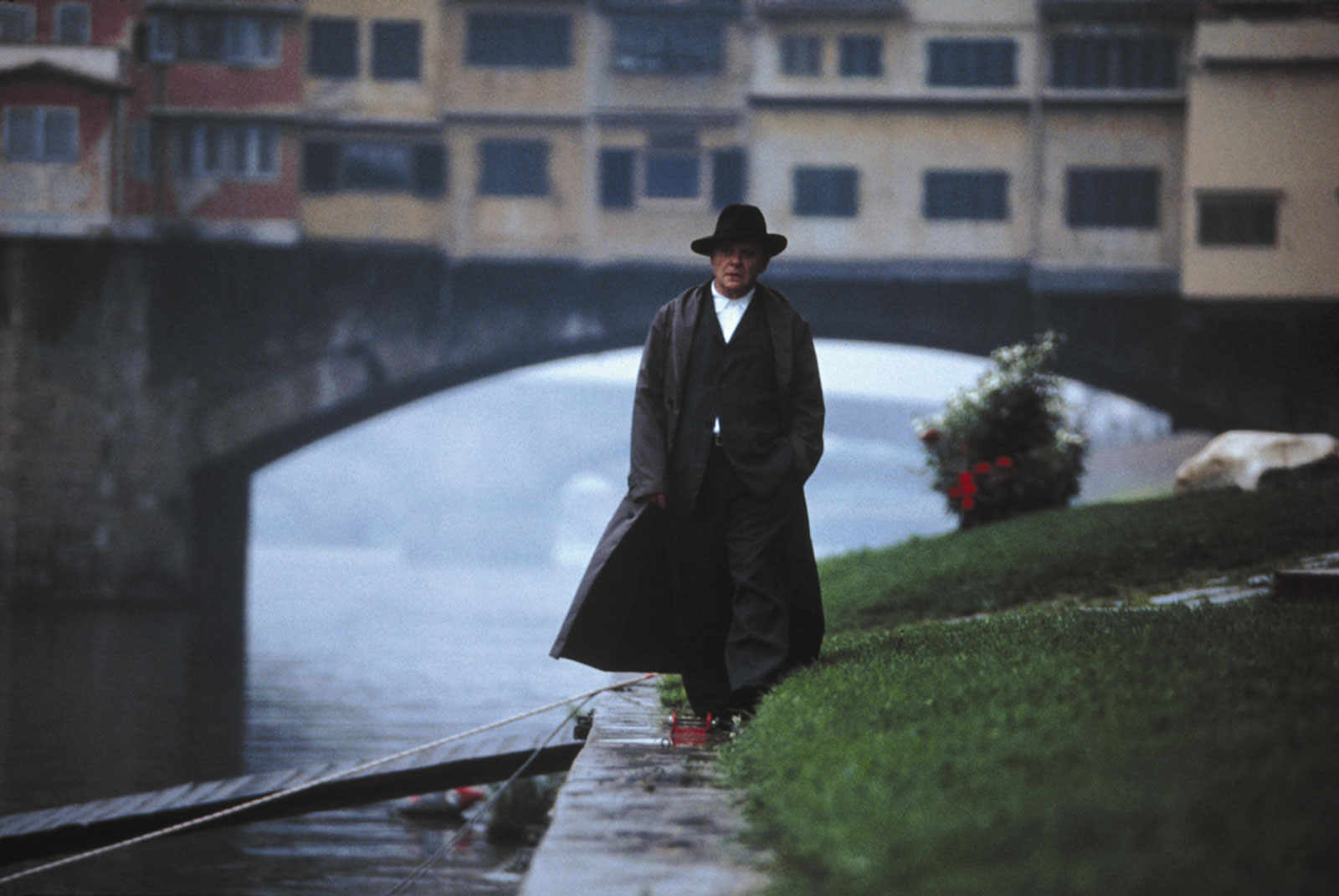
 Hannibal, the long-awaited sequel to 1991’s The Silence of the Lambs, is an almost prototypical Hollywood movie. It’s lush, well produced, well-written, acted professionally and a little light intellectually. Where Silence of the Lambs spent much of its time in relatively heady psychological waters, this film plays less to that and instead stays a lot closer to the typical thriller angle. The result is a lesser, but still solid, film.
Hannibal, the long-awaited sequel to 1991’s The Silence of the Lambs, is an almost prototypical Hollywood movie. It’s lush, well produced, well-written, acted professionally and a little light intellectually. Where Silence of the Lambs spent much of its time in relatively heady psychological waters, this film plays less to that and instead stays a lot closer to the typical thriller angle. The result is a lesser, but still solid, film.
At least part of this stems from the absence of Jonathan Demme and the inclusion of Ridley Scott in the director’s chair. Scott, who created a still thriving branch of the Hollywood aesthetic with the trendsetting films Blade Runner and Alien, nowadays turns his attention to big, complex productions that fit solidly within the mainstream Hollywood formula. They’re oftentimes stellar examples of the style, Gladiator was excellent, but they’re still more testaments to the perfection of his craft than they are to creativity or real intellectual depth. Such is the case with Hannibal.
Aside from the lesser helping of substance, my other complaint with this film is that it’s unnecessarily gruesome. Silence of the Lambs had its moments, but those were worked well into the pace of the film and had a definite purpose. Here the blood and guts scenes mostly serve the same purpose they do in the slasher genre- providing a few cheap thrills.
Aside from the above, I do have to say I enjoyed the film. Scott may not be stimulating the imagination the way he once did, but he really is a master craftsman. The film is well paced, lushly shot (especially the Florentine locations) and relatively suspenseful. I’d read the book previously and I had to use the little bastards room from the time I sat down in my seat, but he film still held my attention throughout its two hours plus running time. Part of that had to do with my curiosity regarding the ending, which was changed from the book, but much of it had to do with good old fashioned storytelling.
The performances also helped to keep me going. As you’d expect, Anthony Hopkins is excellent. Hannibal Lecter is a fascinating a character to start with and Hopkins really does breath life into him. Also, while replacing Jody Foster in the role of Clarice Starling may seem like a thankless task, Julianne Moore really does well with it. I didn’t miss Foster at all. Giancarlo Giannini, Gary Oldman, Frankie R. Faison and Ray Liotta round out the actors deserving specific kudos. Giannini plays an Italian cop on Lecter’s tail and he carries most of the second act. With his screen presence and disheveled, on- edge manner, he does well with the opportunity. Oldman, who is uncredited, voices Mason Verger, Lecter’s fourth victim. Verger is horribly disfigured, bedridden, rich as Midas and obsessed with exacting revenge on Lecter. Oldman adds a wonderfully sinister touch to the role. Faison reprises his role as Barney, the orderly entrusted with handling Lecter. I really liked the guy then. I really like him now. He’s got an easy, natural way with the character that speaks well beyond the surface. Liotta, whose capacity for creepiness is boundless (see Something Wild), takes a bit of that and throws it into the role the a sleezy Justice Department official Paul Krendler. It’s a mighty good fit.
Overall, Hannibal is a good, but not great film. If you weren’t amongst the record breaking crowds* during its opening weekend, you might want to check this one out.
*58 million, which is a record for both an R-rated film and for any film opening in February.
This article was originally published in Boston's Weekly dig (now digBoston) in March 2001.